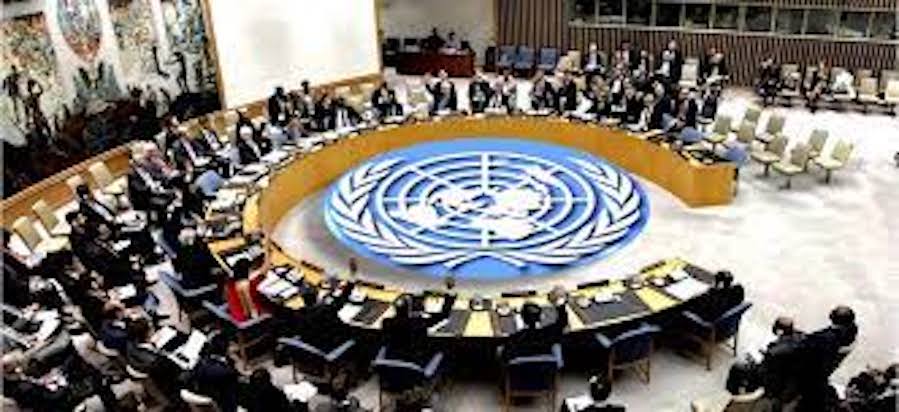Sri Lanka’s new proposed counter-terrorism legislation does not go far enough to remedy the defects of the country’s draconian Prevention of Terrorism Act (PTA), UN experts said today, urging the Government to ensure the new law meets international human rights standards.
“For many years, UN experts and multilateral organisations have consistently said that the current Prevention of Terrorism legislation in Sri Lanka is in violation of international law with its vague terminology, its lack of protection for fundamental human rights, and a lack of independent oversight,” the experts said. “It is deeply regrettable that the proposed legislation does not remedy any of these defects,” they said.
The proposed counter-terrorism bill is currently under consideration in the Sri Lankan Parliament. It is intended to replace the country’s existing Prevention of Terrorism Act, which has long been plagued by structural elements that enable the perpetration of torture, arbitrary detention, enforced disappearance, and other human rights violations.
The experts noted long-standing concerns about the misuse of anti-terrorism legislation and sweeping emergency powers, often used to crackdown on political critics, dissidents and human rights defenders in Sri Lanka. Under the PTA, detainees have been held for decades without trial in the country.
The UN experts said they had previously laid out a series of “benchmarks” for counter-terrorism legislation in Sri Lanka to be human rights compliant. These include employing definitions of terrorism that comply with international norms; ensuring precision and legal certainty, especially when this legislation may impact the rights of freedom of expression, opinion, peaceful assembly, association and religion or belief; instituting robust measures to prevent and halt arbitrary deprivation of liberty; ensuring preventive measures are in place to prevent torture and enforced disappearance and adhere to their absolute prohibition; and enabling overarching due process and fair trial guarantees, including judicial oversight and access to legal counsel.
“Regrettably, only limited changes have been made to the expansive definition of terrorism contained in the legislation,” the experts said. “It is worrying to observe new categories of terrorism including acts related to a “place of public use” rather than the much needed pruning of counter-terrorism powers,” they said.
They also expressed concerns about the considerable expansion of police powers in the new legislation, with less judicial oversight of intercepting telecommunications.
They were dismayed by provisions that weaken the legal basis to arrest individuals suspected of or “possibly” engaged in, any offence under the legislation. The experts said the legislation fails to provide sufficient powers to magistrates to prevent torture by ensuring all detainees are moved from places of detention as soon as allegations of torture, inhuman or degrading treatment emerge.
The counter-terrorism bill also limits the right of access to lawyers for persons charged under the law.
“This is a highly regressive step and it disregards the long-documented violations of human rights occurring in Sri Lanka for persons arrested, detained or convicted of terrorism related offences,” the experts said. “These provisions run contrary to a rule of law-based approach to countering terrorism in society and is not an improvement on the status quo,” they said.
They expressed regret that previous proposals for an independent review panel to adjudicate human rights violations while countering terrorism were rejected in the current draft of the legislation.
The experts welcomed Sri Lanka’s recognition that new legislation is necessary and referred to some positive inclusions in the proposed bill, including the express exclusion of opinion, legitimate criticism, satire, parody made in good faith in the definition of “encouragement of terrorism.” They also welcomed the decision to refrain from making offences under this legalisation punishable by death.
“Root and branch reform of Sri Lanka’s counter-terrorism legislation is long overdue. UN human rights experts have provided a roadmap to that end, and we urge the Government to meet the minimum requirements of due process and human rights compliant counter-terrorism legislation they previously identified,” the UN experts said.
They pledged to strongly support the adoption of legislation that is fully compliant with international human rights standards, as set out by the UN experts, and aligns the EU GSP+ scheme.
The group of UN experts include: Fionnuala Ní Aoláin, Special Rapporteur on the promotion and protection of human rights while countering terrorism, Clément Nyaletsossi Voule, Special Rapporteur on the rights to freedom of peaceful assembly and of association, Mary Lawlor, Special Rapporteur on the situation of human rights defenders, Aua Baldé (Chair-Rapporteur), Gabriella Citroni (Vice-Chair), Angkhana Neelapaijit, Grażyna Baranowska, Ana Lorena Delgadillo Pérez, Working Group on enforced or involuntary disappearances; Margaret Satterthwaite, Special Rapporteur on the Independence of Judges and Lawyers; Morris Tidball-Binz Special Rapporteur on extrajudicial, summary or arbitrary executions; Nazila Ghanea,Special Rapporteur on freedom of religion or belief and Irene Khan, Special Rapporteur on the promotion and protection of the right to freedom of opinion and expression


